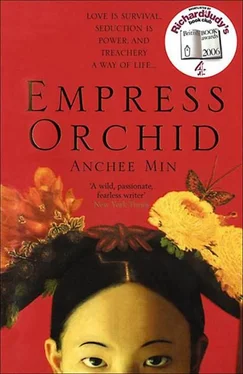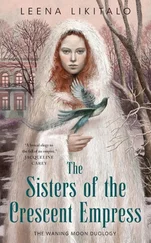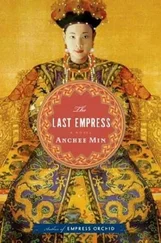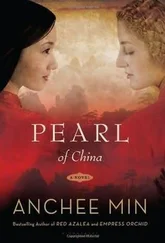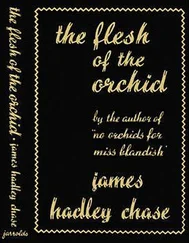Although Prince Kung was impatient, he agreed to test the political waters one last time. We took a summary of a proposal written by General Sheng Pao to the governors of all the provinces which suggested a “three-legged stool,” with Nuharoo and me as coregents and Prince Kung as the Emperor’s chief advisor in administration and government.
Prince Kung suggested that we adopt a method of voting. The idea was clearly Western-influenced. He persuaded us to comply because it was the main way that European nations assured the legitimacy of their governments. We would allow the votes to be anonymous, which no ruler in China’s history had done before. I agreed, although unsure of the outcome. The proposal was printed and distributed along with the ballots.
We nervously awaited the results. To our disappointment, half of the governors didn’t respond, and a quarter expressed a desire to reelect Tung Chih’s regents. No one mentioned any support for Prince Kung’s role in the government. Kung realized that he had underestimated Su Shun’s influence.
The silence and rejection not only put us in an embarrassing situation, but also ruined the timing-our victory over Su Shun had turned sour. People felt sorry for the underdog. Sympathetic comments began to arrive from every corner of China, which could very well lead to a revolt.
I knew we would need to act. We must reposition ourselves and move decisively. My suggestion was that Nuharoo and I issue an affi-davit claiming that before his death our late husband had privately appointed Prince Kung the senior advisor for Tung Chih. In exchange for this invention, Kung would propose to the court that Nuharoo and I rule alongside him. His influence should encourage people to vote for us.
Prince Kung agreed to the plan.
To speed the results, I visited a person whom I had wanted to contact since Su Shun’s downfall, the sixty-five-year-old scholar Chiang Tai, a well-connected social figure and a fervent critic of Su Shun’s. Su Shun had hated the scholar so much that he had the venerable man stripped of all his court titles.
On a pleasant day Chiang Tai and I met at his shabby hootong apartment. I invited him to come to the Forbidden City to be Tung Chih’s master tutor. Surprised and flattered, the man and his family threw themselves at my feet.
The next day Chiang Tai began campaigning for me. While he told everyone about his appointment as Emperor Tung Chih’s master tutor, he also said how wise and capable I was for recognizing true talent. He stressed how sincere and eager I had been to recruit men like him to serve the new government. After that, it took only a few weeks for the political wind to become favorable.
The court counted the votes, and we won.
On November 30, a hundred days after Hsien Feng’s death, the title of Tung Chih’s reign was changed from Well-Omened Happiness to Return to Order. It was Chiang Tai who gave Tung Chih’s reign the new epithet. The word “order” would be seen and pronounced every time a countryman looked at his calendar.
In our announcement, which was drafted by me and polished by Chiang Tai, we emphasized that it was not the choice of Nuharoo and me to rule. As regents, we were committed to helping Tung Chih, but we looked forward with enthusiasm to the day of our retirement. We asked for the nation’s understanding, support and forgiveness.
The change generated great excitement. Everyone in the Forbidden City had been waiting to discard their mourning costumes. For the entire hundred-day period of mourning, no one had worn anything but white. Since men hadn’t been allowed to shave, they looked like grizzled hermits, with scraggly beards and hair sticking out of their noses and ears.
In the period of a week, the Hall of Spiritual Nurturing was cleaned to a glossy shine. A three-by-nine-foot redwood desk was placed in the middle of the hall, covered with a yellow silk tablecloth embroidered with spring flowers. Behind the desk sat a pair of upholstered golden chairs, which were for Nuharoo and me. In front of where we would be sitting was a translucent yellow silk screen hanging from the ceiling. It was a symbolic gesture saying that it was not we who ruled, but Tung Chih. Tung Chih’s throne was placed in the center, in front of us.
On the morning of the ascension ceremony most of the senior ministers were awarded the right to ride either in palanquins or on horses when entering the Forbidden City. Ministers and officials were dressed in gorgeous fur robes draped with jewels. Necklaces and the peacock-feathered hats sparkled with diamonds and precious stones.
At a quarter to ten, Tung Chih, Nuharoo and I left our palaces. We rode in our palanquins to the Palace of Supreme Harmony. The crisp sound of a whip announced our arrival. The courtyard, although filled with thousands of people, was quiet-only the steps of the bearers could be heard. The memory of my first entry into the Forbidden City rushed back to me and I had to hold back my tears.
With his uncle Prince Ch’un as a guide, Tung Chih entered the hall for the first time as the Emperor of China. In unison, the crowd fell on their knees and kowtowed.
An-te-hai, who was in his green pine-tree-patterned robe, walked beside me. He was carrying my pipe-smoking was a new hobby that helped me relax. I remembered asking him a few days earlier what he most desired; I wanted to reward him. He shyly replied that he would like to get married and adopt children. He believed that his position and wealth would attract ladies of his choosing, and he would not totally miss out on his manhood.
I didn’t know whether I should encourage him. I understood his thwarted passion. If I hadn’t lived in the Forbidden City, I would have found myself a lover. Like him, I fantasized about intimacies and pleasures. I resented my widowhood and had been driven nearly mad by loneliness. Only the fear of being caught, and jeopardizing Tung Chih’s future, had halted me.
I sat down next to Nuharoo and behind my son. Holding my chin up, I received kowtows from members of the court, the government and the royal families led by Prince Kung. The prince looked handsome and youthful when standing next to the gray-haired and white-bearded senior officials. He had just turned twenty-eight.
I stole a glance at Nuharoo and was once more struck by her beauti-ful profile. She was in her new golden phoenix robe with matching hairpiece and earrings. She gracefully nodded and tilted her chin, smiling to everyone who came up to her. Her sensuous lips formed a muted sound: “Rise.”
I wasn’t enjoying this as much as Nuharoo was. My mind flew back to the lake in Wuhu where I swam as a young girl. I remembered the water’s smooth coolness and how utterly free I had felt chasing wild ducks. I was now the most powerful woman in China, yet my spirit was stuck with that empty coffin with my name and title carved in cold stone.
My sentiment was shared by another soul. I noticed Yung Lu observing me from a corner of the hall. Recently I had been too occupied with the shadow of Su Shun to allow my thoughts to drift to Yung Lu. Now, as I sat on my throne, I saw the expression on his face and sensed his desire. I felt guilty, yet I couldn’t stop myself from wanting his attention. My heart flirted with him while I sat straight-faced.
Prince Kung announced the end of the audience. The room paid its respects to Nuharoo and me as we rose from our seats. I felt Yung Lu’s eyes following me. I dared not look back.
That night when An-te-hai came to me, I pushed him away. I was frustrated and disgusted with myself.
An-te-hai hit his face with both hands until I ordered him to quit. His cheeks swelled like baked buns. He couldn’t bear my suffering, he said. And he insisted that he understood what I was going through. He thanked Heaven for making him a eunuch and said that his life was meant to share my immeasurable sorrow.
Читать дальше
